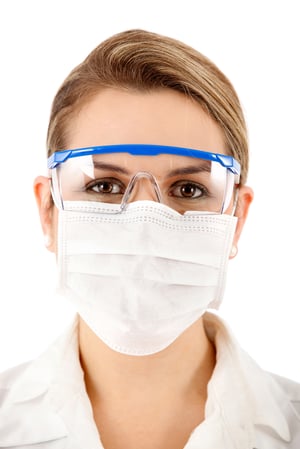
2022 The COVID New Year
Who would have thought we would still be writing about, talking about, dealing with, and continuing to be just sick of COVID-19 still in 2022? This is not how we wanted to start our New Year, but working together and supporting our members as the pandemic continues is a priority for us.
PARTNER SPOTLIGHT
Dealer Management System, Computer Technology, Media/Advertising, Automotive Auction, F & I/Aftermarket Products, Automotive Technology Training & Compliance
 A NHADA Gold PARTNER
A NHADA Gold PARTNERComputer Technology, Automotive Shop Equipment, Environmental Services
 A NHADA Platinum PARTNER
A NHADA Platinum PARTNERF & I/Aftermarket Products, Automotive Technology Training & Compliance, Environmental Services
.png?width=150&name=corp_logo_horz_on_light_with_trademark_symbol_1200w%20(002).png) A NHADA Diamond PARTNER
A NHADA Diamond PARTNERIn this article:
- CDC Guidelines vs. New Hampshire's Guidelines
- Isolation
- Vaccination Status Terminology
- Testing and Symptomatic Employees
No member has been untouched by COVID; whether it’s your staff or their families or friends everyone seems to have a COVID-19 story. The calls for assistance here at NHADA headquarters have diminished somewhat but we know it's not because you aren’t dealing with COVID it’s because we have all become somewhat experts on it.
On January 6, 2022, the NH Department of Health and Human Services Division of Public Health Services Bureau of Infectious Disease Control released new updated Isolation and Quarantine Recommendations for the General Public. These guidelines are available here.
CDC Guidelines vs. New Hampshire's Guidelines
The State of NH did not go with the CDC Guidelines exactly; some areas are different. The biggest difference is with quarantine guides. According to the CDC, persons who are unvaccinated or are not “up to date” on receiving all recommended COVID-19 vaccine doses (including booster shots) should quarantine for at least 5 days and then wear a well-fitting face mask for an additional 5 days when around other people at home or in public locations after exposure to someone with COVID-19. The State of NH guidelines in contrast to the CDC recommends quarantine only for household contact exposures. The state recommends though that everyone exposed to COVID-19 should seek testing 5 days after the exposure. The CDC recommendations are here.
Isolation
Business owners are reminded that the Isolation and Quarantine Recommendations for the General Public are what we all should be following to limit the spread of COVID-19 but remember you can do more. Use these as the minimum guideline and consider going a step further; consider doing more. A business can choose to be more conservative and use the CDC guidelines, you can consider mask mandates, you can choose to add other mitigation measures to your business. We can always do more but we should never do less.
Vaccination Status: Fully Vaccinated Now = Up-To-Date
Another big change is we used to use the term “fully vaccinated”. That is no longer a term that will be used per the CDC and the state. The new term is “up to date”. All the recommendations now refer to people who are “unvaccinated” or “up to date”. A person who is up to date has received all recommended vaccine doses including the booster shots. If the person is not considered “up to date” they will be recommended to follow the same recommendations as the “unvaccinated” person.
Testing and Symptomatic Employees
With the availability of home test kits being a challenge has arisen with the state gathering numbers. At the recent Governors press conference it was shared that if people test at home and find themselves to be positive for COVID-19 but they don’t report that to their healthcare provider or the state; the number of positive cases will no longer be accurate. If you have symptoms of COVID-19 and seek testing you should always keep your healthcare provider in the loop. There are current treatment options for COVID-19 that aim to keep people out of the hospital; most need to be initiated before day 5 of illness. Informing your healthcare provider of a positive result from a home test may be the link you need to a treatment option. Here is a recent article on home test kits.
The CDC recommends right now that if you have symptoms of a cold, the flu, or COVID-19 you should assume its COVID-19 until found not to be. This is a good reminder that these are all so similar. Testing can be a challenge with the limited availability of home rapid tests and the long lines you may encounter to get a PCR test. Even if you are found to not have COVID-19 but you are ill; stay home take care of yourself. COVID-19 is taxing employers to the max with staffing issues, but going to work with the flu or a bad cold can lead to more lost days from work as well. The best guide is to stay home if you are sick and to always keep your healthcare provider in the loop.
As always, we are here for all your COVID-19 questions and concerns please don’t hesitate to reach out. Keeping up to date on the latest COVID-19 information is a priority for us so we can assist our members during this difficult time.



















.png?width=150&name=Ally_Final%20Logos%20and%20Pairings_11.14.2018-01%20(2).png)


-2.png?width=150&name=Wipfli%20Logo%20Blue%20RGB%20(1)-2.png)


.jpg?width=150&name=NHADA_Partner_FTR_Img_NHADA_Insurance%20(1).jpg)


.jpg?width=150&name=NHADA_Partner_FTR_Img_JMA(1).jpg)

